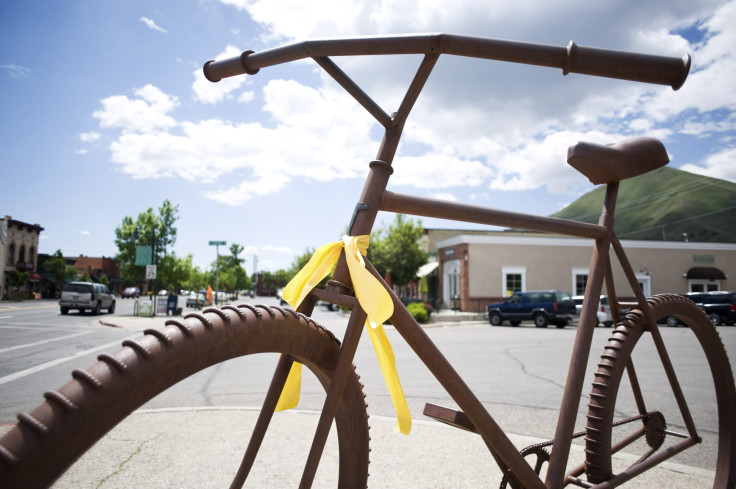Bowe Bergdahl: Five Questions Left Unanswered

The worst for Bowe Bergdahl and his family is over. He's recovering in an Army medical hospital in Germany, and his family in Idaho can finally know he's safe after five years in Taliban captivity.
The hard part for the rest of the nation is just beginning. Bringing home the last and only U.S. POW in Afghanistan should be a step toward wrapping up and moving beyond a 13-year war that has claimed the lives of more than 2,000 Americans. But as more facts come to light, the Bergdahl case is looking more like a divisive mystery the nation have to deal with first. Here are five lingering questions that are likely to be much in the news in the next few weeks.
Did he desert? While officials have dodged this question like a cat dodges the tub, a number of veterans claiming to be close or part of Bergdahl’s unit in Afghanistan say he did in fact desert. According to the Washington Post, the Pentagon also confirms that he walked off base, but doesn't specify where he went. The administration may be forced to confirm or deny any reports. When asked if he deserted, the State Department said it considers Bergdahl "a member of the military who was detained while in combat," which clears up absolutely nothing.
Did anyone die looking for him? Of course this matters a lot more if it turns out he did actually desert. According to some accounts, yes. Nathan Bradley Bethea, who served in the same battalion, counts eight soldiers who died in incidents directly or indirectly related to Bergdahl’s disappearance and the attempts to find him.
Army higher-ups also told Bethea and the entire battalion to not talk about anything to do with Bergdahl "for fear of endangering him,” Bethea says.
Again, the Pentagon has not come out to confirm whether or not anyone was killed looking for him.
Will the Republicans get the hearing they want? Republican members of Congress have criticized President Barack Obama for two reasons: for “negotiating with terrorists” and for sidestepping the requirement to notify Congress 30 days in advance of releasing Guantanamo Bay prisoners -- the five Taliban leaders who were freed in the exchange.
The administration argues the deal was time-sensitive, but the Republicans in Congress aren’t buying it. They say Obama could have used other means to secure Bergdahl’s release (aka send in a Special Forces team to rescue him). To the second point, many say the U.S. set a bad precedent and created incentive for radical insurgents to take hostages in the future. Sen. John McCain, R-Ariz., a man who spent over five years as a POW himself, accused the administration of “placing in danger the lives of Americans in the future,” by securing Bergdahl’s return with a prisoner swap.
What will happen with the five Taliban leaders released in exchange for Bergdahl? Under the deal, they are not supposed to be allowed to leave Qatar for a year but will be allowed to open a Taliban office in the Persian Gulf State. According to Reuters, the Taliban already have a presence in Qatar after the country hosted secret talks between Taliban and U.S. leaders in 2010.
A leaked cable between the U.S. and its embassy in Doha criticizes Qatar for allowing former Guantanamo Bay detainee Jarallah al-Marri to travel to Britain twice when he was supposed to be barred from leaving the country. Considering the high-profile nature of this release, the U.S. likely put far more pressure on the Qataris to hold up their end of the deal. Obama’s administration politically can’t afford to have any of these Taliban leaders break an agreement, so it will likely keep an extremely close eye on these men.
Lastly and perhaps the question that will endure the longest in the saga: will Sgt. Bergdahl face charges in a U.S. military court? The Obama administration probably doesn’t want a trial. The president doesn’t typically hold a speech in the Rose Garden about someone he rescued and then send him to court-martial, but many veterans rightly want answers. Michael Waltz, an Army major with the U.S. Special Forces, is among them.
“This guy needs to be held accountable when the time is right, of course. Every American deserves to come home. I’m happy for his family. But he needs to be held accountable."
Bethea doesn't expect there to be any charges "in light of the propaganda value" of Bergdahl's release. He's probably right. One Reddit commenter (and self-identified but unverified veteran) said his back pay should be given to the families of the men who died looking for him. Even if he isn't tried, Andrew Exum, a retired Army officer and blogger, says knowing men died for him is punishment enough.
If how #BoweBergdahl disappeared is true, this will not be the 1st time men have died trying to rescue someone who did something dumb. (3)
— Andrew Exum (@abumuqawama) June 1, 2014#BoweBergdahl should know how many men died in efforts to get him back, and that's punishment enough, even if he did the right thing. (7)
— Andrew Exum (@abumuqawama) June 1, 2014© Copyright IBTimes 2024. All rights reserved.












